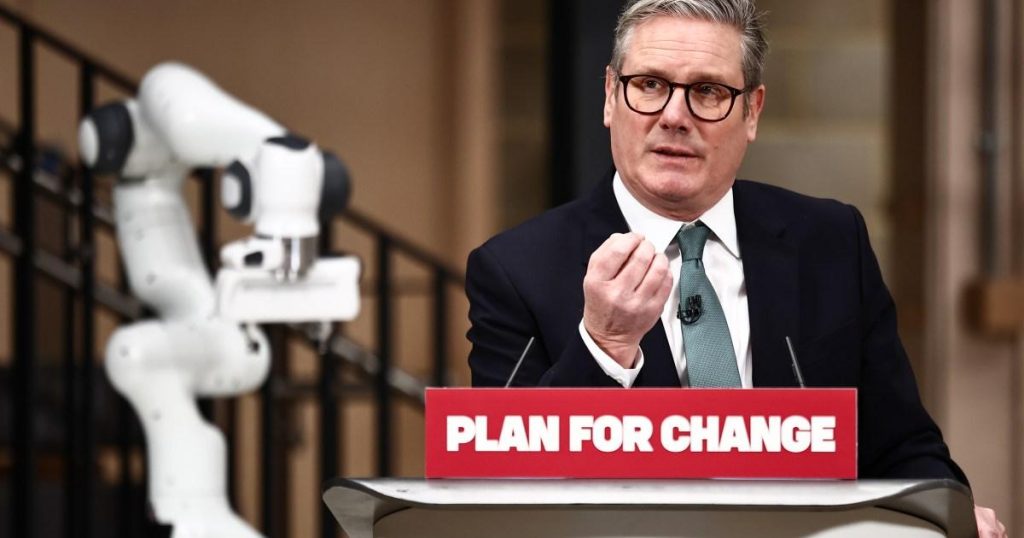Keir Starmer’s AI Vision: A Double-Edged Sword for the UK Economy and Public Services
Prime Minister Keir Starmer has unveiled an ambitious roadmap for the UK, aiming to leverage the transformative power of artificial intelligence (AI) to propel economic growth and revolutionize public services. This vision projects Britain as a future AI superpower, a hub of innovation and technological advancement. However, this seemingly progressive strategy has been met with skepticism and concern by some members of the public, who question the potential societal and economic ramifications of such a drastic shift. The debate revolves around the potential displacement of human workers by AI, the financial implications for social safety nets, and the overall feasibility of depending on AI for such critical aspects of national development.
The central argument against Starmer’s AI-driven future stems from the fear of widespread job losses. Critics argue that automating tasks currently performed by human workers will inevitably lead to unemployment, particularly impacting those in roles easily replaced by AI-powered systems. This raises concerns about the financial burden on the state, as increased unemployment could result in higher demands for benefits and potentially strain pension systems. The question of how to support a displaced workforce in a rapidly changing economic landscape remains a significant challenge to the proposed plan.
Beyond the immediate economic impacts, skepticism also arises from the inherent limitations of AI itself. The adage "garbage in, garbage out" highlights the dependence of AI on the data it’s trained on. If the input data is flawed, biased, or incomplete, the output generated by AI will be equally unreliable. Critics argue that relying on AI for complex tasks like economic planning carries significant risks, as human biases ingrained in the data could perpetuate and even exacerbate existing societal inequalities. Moreover, the dynamic and unpredictable nature of human behavior presents a further challenge to AI-driven planning, as unforeseen circumstances can easily disrupt even the most carefully calculated projections.
Public discourse also touches upon the effectiveness of disruptive activism in addressing pressing issues like climate change. Just Stop Oil’s recent actions, including defacing Charles Darwin’s grave, have been widely condemned as counterproductive. While acknowledging the urgency of climate action, many argue that such extreme measures alienate potential allies and detract from the broader environmental movement. The focus should, they contend, be on constructive engagement and practical solutions rather than attention-grabbing stunts that generate negative publicity and undermine the cause.
The debate extends to the healthcare system, specifically regarding the allocation of resources for weight-loss interventions. Some argue that providing weight-loss drugs to individuals capable of managing their weight through lifestyle changes is an inefficient use of limited NHS resources. They contend that individuals who are overweight due to lifestyle choices bear personal responsibility for their health and should prioritize diet and exercise before seeking medical interventions. This perspective highlights the complex ethical and practical considerations surrounding healthcare resource allocation and individual responsibility for health outcomes.
Finally, the discussion touches upon the broader issue of tax havens and their impact on global economic fairness. Proposals to rein in tax havens, particularly those linked to the UK as crown dependencies, are seen as a potential avenue for increasing government revenue. While acknowledging the challenges in regulating these offshore financial centers, proponents argue that reducing tax avoidance and evasion could significantly benefit public coffers and contribute to a more equitable global financial system. The debate highlights the tension between international financial regulations and national sovereignty, as well as the ongoing struggle to curb tax avoidance and ensure fair contributions to the global economy.


